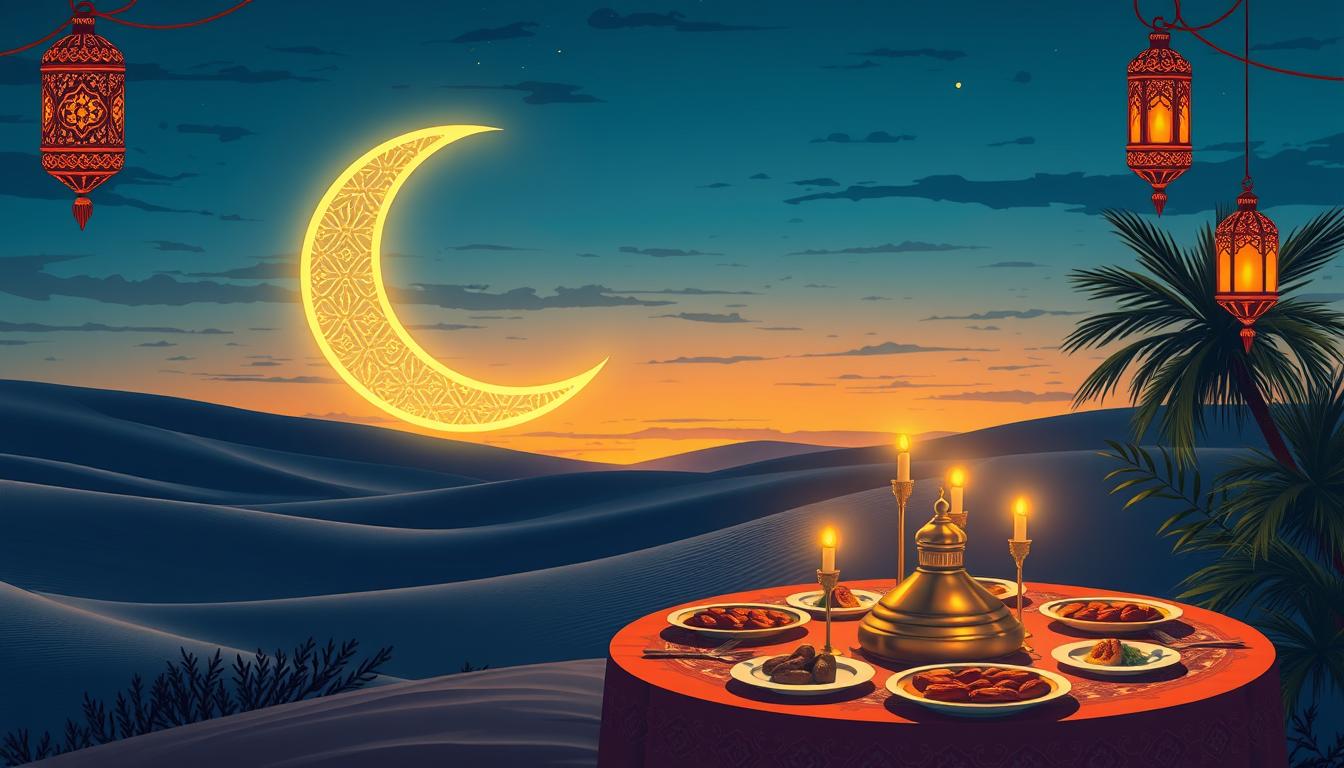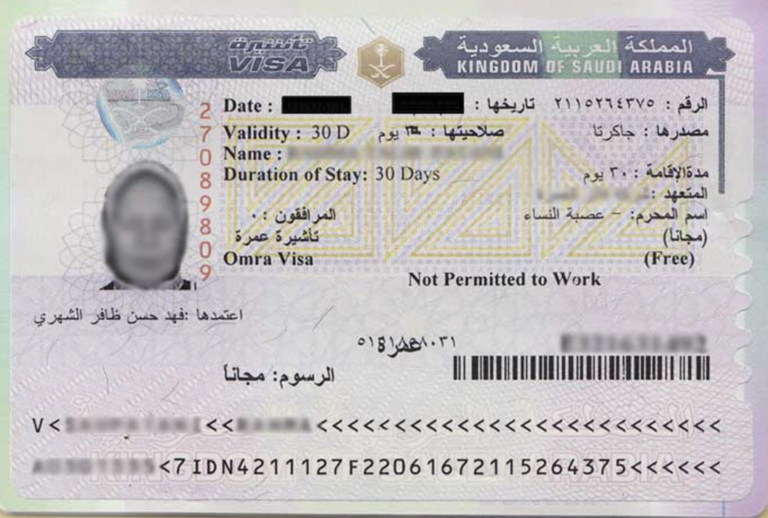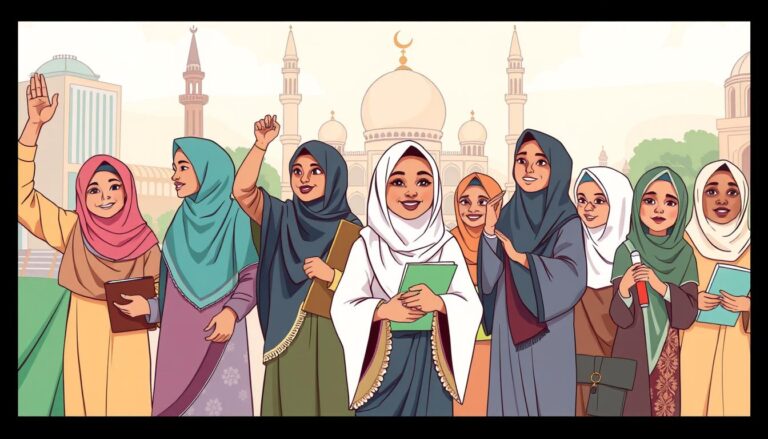What Makes Ramadan Special? A Guide to Its Importance
Have you ever wondered why over 1.8 billion Muslims worldwide eagerly anticipate Ramadan each year? This month is special for believers, offering a time for spiritual renewal and deep reflection. Let’s explore the significance of Ramadan and uncover the reasons behind its special status in Islam.
Ramadan is the ninth month of the Islamic lunar calendar. It’s a time for fasting, increased worship, and community engagement. It’s believed to be the month when the Quran was revealed, adding to its spiritual importance. During this time, Muslims fast from dawn to sunset, abstaining from food, drink, and other physical needs.
The Ramadan significance extends beyond personal discipline. It’s a time for families to gather, share meals, and strengthen bonds. The nightly iftar, the meal to break the fast, often becomes a joyous communal event. This holy month also emphasizes charitable acts, encouraging Muslims to help those in need.
As the lunar calendar shifts, so does the timing of Ramadan. In 2024, it’s expected to start on March 11 and end around April 9. This cyclical nature means Muslims experience fasting in different seasons throughout their lives, adding to the unique challenges and rewards of this spiritual journey.
Key Takeaways
- Ramadan is the ninth month of the Islamic lunar calendar
- It’s a time for fasting, increased worship, and spiritual growth
- The month is believed to be when the Quran was revealed
- Fasting occurs from dawn to sunset each day
- Ramadan emphasizes charity, community, and self-reflection
- The timing of Ramadan shifts each year due to the lunar calendar
The Sacred Month of Ramadan: An Overview
Ramadan is a special month in the Islamic lunar calendar. It is the ninth month, a time for spiritual growth and reflection. Muslims around the world observe this month, which lasts 29 to 30 days, based on the moon’s sighting.
Definition and Timing of Ramadan
During Ramadan, Muslims fast from dawn to sunset. They don’t eat, drink, or do certain activities during the day. This follows a Quranic verse in Al-Baqarah 2:183, which says fasting helps believers become righteous.
Historical Significance in Islam
Ramadan is important because it’s when the Quran was revealed. As Surah Al-Baqarah (2:185) says, Allah shared the Quran with the world during this month. This made Ramadan a time for more worship and spiritual growth.
Importance Before Islam
Before Islam, Arabs saw Ramadan as a holy month. Wars and feuds stopped during this time. It was believed that God shared scriptures with prophets like Abraham, Moses, David, and Jesus in Ramadan. This shows its spiritual value has lasted through time.
“Allah is with those who exercise self-restraint.” – Quran (16:128)
This verse highlights the fasting benefits and spiritual discipline of Ramadan. Muslims see this month as a chance to improve themselves and get closer to Allah.
The Spiritual Significance of Fasting in Ramadan
Fasting in Ramadan is a special practice for Muslims around the world. It’s a time for spiritual growth and learning self-discipline. Fasting is more than just not eating or drinking; it’s a way to clean the soul and strengthen faith.
Purpose of Fasting: Developing Righteousness
The main goal of fasting in Ramadan is to become more righteous. This means being more aware of God and following Islamic values. Fasting helps people feel more thankful and connected to their faith.
Research shows fasting can also improve health. It helps burn fat and repair cells.
Fasting as a Shield from Sin
Prophet Muhammad said fasting acts as a shield against sin. It helps people avoid bad temptations and actions. By not eating or drinking, Muslims try to make their hearts and minds pure.
The Quran teaches patience during fasting. This patience helps people grow spiritually.
Controlling Desires and Impulses
Fasting teaches self-control and discipline. It helps manage hunger and thirst. It also helps control other desires and impulses.
During Ramadan, people try not to lie, gossip, or use bad language. This self-discipline can change behavior for the better.
“Whoever fasts during Ramadan out of sincere faith and hoping to attain Allah’s rewards, then all his past sins will be forgiven.” – Prophet Muhammad
Fasting in Ramadan has many spiritual benefits. It encourages self-reflection, more prayer, and stronger community ties. By facing fasting challenges, Muslims seek to get closer to Allah and experience deep spiritual changes.
What Makes Ramadan Special? A Guide to Its Importance
Ramadan is a month of spiritual renewal and community gatherings. It’s a sacred time in the Islamic calendar for Muslims around the world. During Ramadan, believers practice to deepen their faith and connect with Allah.
Fasting from dawn to sunset is a key practice. It teaches self-discipline and empathy for the less fortunate. It also helps believers be more grateful.
Spiritual growth is a big focus in Ramadan. Muslims pray and recite the Quran more, seeking closeness to Allah. The last ten nights are especially important for extra worship and reflection.
“Ramadan is the month in which the Quran was revealed as guidance for mankind.”
Community gatherings are a big part of Ramadan’s spirit. Families and friends come together for iftar, the meal that ends the fast. These gatherings strengthen bonds and foster unity.
Ramadan ends with the joyous Eid al-Fitr celebration. It marks the end of fasting and brings communities together. The spirit of generosity and compassion from Ramadan lasts all year.
The Night of Power: Laylat al-Qadr
Ramadan is a special time for Muslims all over the world. At its heart is Laylat al-Qadr, the Night of Power. This night is when the Quran was revealed to Prophet Muhammad, making it very important spiritually.
The Revelation of the Quran
Laylat al-Qadr is closely tied to the Quran’s revelation. It’s said that on this night, the first verses of the holy book were given to Prophet Muhammad. This event started Islam’s sacred text and the faith’s foundation.
Significance and Blessings
The Night of Power is very important in Islam. The Quran says it’s “better than a thousand months,” showing its great spiritual value. Muslims believe that praying on this night brings big blessings, like having sins forgiven and prayers answered.
“The Night of Decree is better than a thousand months.” (Qur’an, 97:3)
Seeking the Night of Power
Muslims look forward to Laylat al-Qadr in the last ten days of Ramadan. Its exact date is unknown, but it’s thought to be on an odd night. This mystery makes believers pray more and try to be closer to Allah during this time.
- Increase in prayer and Quran recitation
- Engaging in extended night prayers (Tahajjud)
- Intensifying supplications and remembrance of Allah
The Night of Power is the heart of Ramadan. It offers a special chance for spiritual growth and closeness to Allah. Its deep meaning and many blessings make it a precious part of the holy month.
Ramadan Practices and Traditions
Ramadan is the 9th month of the Islamic lunar calendar. It’s a time for special practices. Muslims fast from dawn to sunset, which can last 11-16 hours.
The day begins with suhoor, a meal eaten before dawn. It helps keep energy up. When the sun sets, families and friends come together for iftar. They eat dates and drink water, just like Prophet Muhammad taught.
Nights in Ramadan are filled with spiritual activities. Many Muslims go to terawih prayers at mosques. There, one-thirtieth of the Quran is recited each night. Some also practice i’tikaf, a spiritual retreat in the mosque during the last ten days.
- Fasting exemptions: pregnant women, nursing mothers, sick individuals, elderly, and children
- Children start symbolic fasting around age seven
- Lailat al-Qadr (Night of Power) occurs in the last ten days
Ramadan is more than just fasting. It’s a time for charity, self-reflection, and spiritual growth. Muslims try to control their desires, improve their character, and strengthen community bonds during this sacred month.
Fasting is a shield. So the person observing fasting should avoid obscene speech and should not behave foolishly and impudently, and if somebody fights with him or abuses him, he should tell him twice, ‘I am fasting.’
The Social and Communal Aspects of Ramadan
Ramadan brings Muslims together, fostering unity and compassion. This sacred month transforms communities, emphasizing shared experiences and collective growth.
Breaking Fast Together: Iftar Gatherings
Iftar, the evening meal that breaks the daily fast, is a time for community gatherings. Families and friends come together to share food and gratitude. These nightly gatherings strengthen family bonds and create lasting memories.
Increased Charitable Acts and Generosity
Ramadan inspires a surge in charitable acts. Muslims are encouraged to give zakat, donating 2.5% of their wealth to those in need. This practice, dating back over 1400 years, reinforces the importance of helping others. Many Muslims also volunteer their time, further enriching their communities.
Strengthening Family and Community Bonds
The shared experience of fasting and worship creates a unique atmosphere of solidarity. Communal prayers, like the nightly Taraweeh, bring people together. This tradition, formalized during the Umayyad Caliphate, continues to unite Muslims worldwide.
- Millions observe Ramadan globally
- Iftar gatherings occur nightly
- Increased focus on charity and volunteering
- Communal prayers strengthen social ties
Ramadan’s social aspects have evolved over centuries, adapting to different cultures while maintaining its core values of community, charity, and spiritual growth. From the Abbasid Caliphate’s public iftars to modern-day charitable initiatives, Ramadan continues to foster a sense of belonging and mutual support among Muslims worldwide.
Spiritual Growth and Self-Reflection During Ramadan
Ramadan is a special time for Muslims to work on themselves. It’s a month to look inside, grow, and become more mindful. People fast, pray, and reflect, which helps them renew their spirits.
Fasting teaches self-control and understanding others. It’s about not eating or drinking during the day. This helps people control their wants, be patient, and be thankful for what they have.
“Fasting is a shield with which a servant protects himself from the Fire.” – Prophet Muhammad
Many Muslims use Ramadan to learn more about their faith and improve themselves. They pray a lot and think deeply, trying to get closer to God. They also read the Quran, which was revealed during this month.
- Engage in self-reflection
- Practice mindfulness
- Cultivate empathy
- Strengthen spiritual discipline
Ramadan also teaches the importance of giving and community. Muslims are urged to give a lot, which builds kindness and responsibility. This helps them understand their role in the world and feel connected with others.
Historical Events and Victories in Ramadan
Ramadan is a special month in Islamic history. It’s filled with significant events that shaped the faith. This month saw important battles and spiritual milestones that inspire Muslims everywhere.
The Battle of Badr
In 624 CE, the Battle of Badr took place on the 17th of Ramadan. This victory was crucial for the early Muslim community. Led by Prophet Muhammad, they fought against odds and won, capturing 70 Quraish men.
The Night Journey
Prophet Muhammad’s night journey and ascension (Mi’raj) happened in Ramadan. This journey, from Mecca to Jerusalem and beyond, is deeply meaningful for Muslims. It shows the spiritual depth of Ramadan.
Conquest of Makkah
In the 8th year after the Hijra, Prophet Muhammad conquered Makkah in Ramadan. This event was a major milestone in Islam’s spread. The Prophet forgave his enemies and made Makkah a center of Islam.
“Whoever enters the house of Abu Sufyan is safe, whoever lays down arms is safe, whoever locks his door is safe.”
Prophet Muhammad’s words of mercy during the conquest show Islam’s spirit of forgiveness. Ramadan remains a time for Muslims to reflect on these events. It inspires their spiritual growth.
Conclusion
Ramadan is a key part of Islamic faith, showing the importance of spiritual growth and community. It’s a time when Muslims around the world practice self-discipline and devotion. They fast from dawn to dusk, abstaining from food and drink.
Ramadan is more than just personal growth. It brings families together for meals before dawn and in the evening. Mosques are filled with nightly prayers, and many aim to read the entire Quran during this time.
As Ramadan ends, the focus shifts to giving with Zakat al-fitr donations. The joy of Eid al-Fitr celebrates the end of fasting. But the lessons of patience, self-control, and kindness stay with Muslims all year. These values, learned during Ramadan, guide them, showing the month’s lasting impact.
Source Links
- Ramadan
- How Does Ramadan Work? A Beginner’s Guide | Yaqeen Institute for Islamic Research
- Ramadan | Fasting, Traditions, & Facts | Britannica
- The Month of Ramadan:A Guide to the Sacred Month
- Afghanaid’s Guide to Ramadan | Afghanaid
- What is the Spiritual Significance of Ramadan?
- The Spiritual Significance of Ramadan: Is It Really About Understanding How The Poor Feels?
- Ramadan: What is Ramadan?
- Ramadan
- Why is Ramadan Important: Virtues and Significance of Ramadan
- Why Laylatul Qadr? The Significance & Virtues of the Most Important Night of the Year | Yaqeen Institute for Islamic Research
- What is Laylatul Qadr? Making the Most of the Last 10 Nights of Ramadan
- Guest Blog: Understanding Ramadan and Laylat al-Qadr – The Diversity Movement
- Ramadan Information: Understanding its Significance and Practice
- Ramadan: Everything You Need To Know
- History of Ramadan – A Journey Through Time
- The Significance of Ramadan: Understanding the True Essence of Self-Restraint in Islam
- Embracing Spiritual Growth During Ramadan – Transparent Hands
- Ramadan: A Month of Spiritual Renewal and Soulful Cleansing – World Hijab Day
- The Spiritual Journey of Ramadan: A Time of Reflection, Discipline, and Community
- 7 Facts About Ramadan—Islam’s Holiest Month | HISTORY
- 7 Important Events of Ramadan Every Muslim Should Know
- Embracing the Spirit of Ramadan: A Comprehensive Guide | CAIR Oklahoma
- 7 Life Lessons From Ramadan That Apply To Any Month And Year – Wide Impact







